Playing Favorites: A Talk with Myke Cole
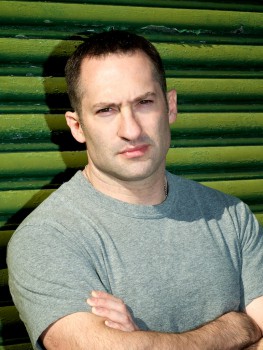 Myke Cole is a badass. OK, I’ve never met him, but seriously smalls, take a look at that square-jawed, large-armed headshot. Badass. He looks like the kinda guy who could jump-punch a shark from a speedboat. He probably has. In fact, did you know that Myke Cole once pulled Chuck Norris from the gaping maw of a Great White? True story.* The next day, he saved seventeen pugs and a heretofore unknown, complete vellum copy of the Gutenberg Bible from a warehouse fire on the docks.** Yeah, he’s that guy. You’d hate him if he weren’t so dang nice. Instead, you want to bump into him at a coffeeshop.
Myke Cole is a badass. OK, I’ve never met him, but seriously smalls, take a look at that square-jawed, large-armed headshot. Badass. He looks like the kinda guy who could jump-punch a shark from a speedboat. He probably has. In fact, did you know that Myke Cole once pulled Chuck Norris from the gaping maw of a Great White? True story.* The next day, he saved seventeen pugs and a heretofore unknown, complete vellum copy of the Gutenberg Bible from a warehouse fire on the docks.** Yeah, he’s that guy. You’d hate him if he weren’t so dang nice. Instead, you want to bump into him at a coffeeshop.
His first novel, SHADOW OPS: Control Point, makes for hella good weekend reading. Oscar Britton is an Army officer turned fugitive sorcerer. Britton isn’t a bad guy, but he is dangerous. He’s manifested magical powers that he can’t control (like thousands of others across the world) and the government he formerly worked for is now determined to collect and control him…or take him out.
Cole has the chops to write military fantasy. He’s been a security contractor, government civilian and military officer. Dude’s worked everything from Counterterrorism to Cyber Warfare, in addition to serving three tours in Iraq and being recalled to serve during the Deepwater Horizon oil spill.
We here at Black Gate pride ourselves on asking the questions that dare not be asked. Yes, constant reader, we got a hold of Myke Cole and asked him about his favorites. These sort of questions are usually scoffed at…how can someone pick a favorite book? THERE ARE SO MANY GOOD ONES! But Cole graciously answered us.
An Interview with Myke Cole
Conducted and transcribed by Patty Templeton, May, 2012
Black Gate: What are a few of your favorite nonfiction military books?
Myke Cole: Wow. There are so many that have been incredibly influential throughout my career. This is almost like asking me to pick my favorite fantasy novels or comic books. The problem is that they’re pretty much all my favorite. Let me give you three:
The first is Sir Charles William Chadwick Oman’s The Art of War in the Middle Ages. It’s dated, but it has mapped layouts of most of the major battles I was interested in, and forms the basis for many of my favorite table top historical wargames.
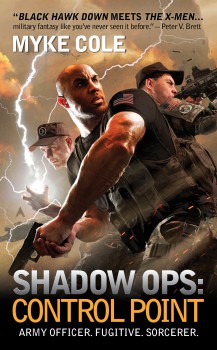 The second would have to be Carl Philip Gottfried von Clausewitz’s Vom Kriege. I swear, I’m not just picking these guys because they have long names. Vom Kriege is the seminal text on modern warfare (the kind of warfare that company grade officers like myself have been trained to fight, and is now being rendered partially obsolete by the rise of transnational insurgency), and it has helped define how an entire generation of military leaders think about war. It has set our vocabulary and given us a context for discussion.
The second would have to be Carl Philip Gottfried von Clausewitz’s Vom Kriege. I swear, I’m not just picking these guys because they have long names. Vom Kriege is the seminal text on modern warfare (the kind of warfare that company grade officers like myself have been trained to fight, and is now being rendered partially obsolete by the rise of transnational insurgency), and it has helped define how an entire generation of military leaders think about war. It has set our vocabulary and given us a context for discussion.
The third is The Western Way of War, by Victor Davis Hanson. It’s a foundational book that helps lay the ancient groundwork that would eventually become my trade.
Keep in mind, these are just three good books. They are not my three favorite by any means. You’ll also want to read Van Creveld’s The Transformation of War, Mao Tse-Tung’s On Guerrilla War, Sun Tzu (and commentaries), Musashi, Fussel, Gibbon and on and on and on.
What about your favorite military novels (of any genre)?
Oh, man. You are not making this easy. I’d say for Military Science Fiction, you’ll want to read Robert Buettner’s Orphanage and Jack Campbell’s Lost Fleet series. Buettner is focused on ground combat and Campbell on fleet battles, but both are utterly authentic military stories. I wrote a reflection on Orphanage over at Tor. You can read it here.
My favorite Military Fantasy novels are Naomi Novik’s Temeraire series, which reimagines the Napoleonic War with an aerial corps mounted on dragons. Novik is a real Jane Austen scholar. She gets the flavor of the period right and logically extrapolates how the dragons would impact Edwardian society.
You can’t leave out Joe Abercrombie’s The Heroes, which is an intensely military novel. The book takes place over three days of a single battle and is one of the most gripping stories I’ve ever read. Abercrombie’s cast of scarred, battle-weary warriors is absolutely spot on, and he is a master of dialogue only rivaled by Scott Lynch.
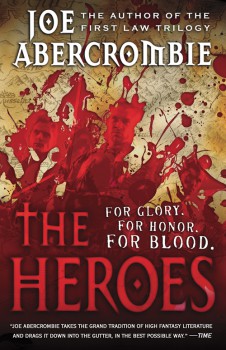 Maybe also check out Robert Grave’s Count Belisarius, which is a great war novel (dealing with ancient Byzantium), but it’s a little hard to find these days.
Maybe also check out Robert Grave’s Count Belisarius, which is a great war novel (dealing with ancient Byzantium), but it’s a little hard to find these days.
I’m gonna do it. I’m gonna kick that dead horse – what are your top three favorite military films?
This is getting painful. The first, hands-down, is Black Hawk Down. It is the closest thing I know to decent media portrayal of real COIN (Counterinsurgency) operations using SOF (Special Operations Forces) elements.
The second would be Saving Private Ryan. Where Black Hawk Down deals mostly with elite professionals, Saving Private Ryan does a great job of examining the role of competent volunteers or reluctant amateurs who rise to the task and emerged changed from the crucible of battle. It’s a fabulous film and really evokes the existential stakes of World War II.
The third isn’t a movie, it’s the HBO series Band of Brothers, based on the Stephen Ambrose book (which I should have mentioned above). It has a lot in common with Saving Private Ryan, but its longer, serial nature lets you really get involved in a large ensemble cast of characters in a way you can’t in just two hours. In the end, what makes war really interesting is the same thing that makes all stories really interesting: You take people, put them in tough situations, and see what they do and how they change.
This question is late to the dance. Do you even like to read or watch military-themed books and movies?
Sure, I do. I chose armed service as a career because it fascinates me. Besides, it’s really hard to find a book or movie that isn’t military themed, especially in SF/F. The vast majority of genre fiction (which is my favorite kind) centers around some kind of violent struggle. This is even true of YA and Middle Grade fiction.
The dead horse has a living twin. It wants to know what bands you couldn’t live without.
I’m not really a band guy. I listen mostly to movie soundtracks or net radio. I like being exposed to new music that I wouldn’t hear otherwise. When it’s not movie soundtracks, I’m on net radio listening to music sung in languages other than English. Right now I’m listening mostly to Arab and Persian language hip-hop and Hindi Bhangra. The best stuff in Arabic and Persian seems to be coming from refugees living in Europe, mostly France and the Netherlands.
Twin horse wants to know, Beatles or Stones? What do you think this answer says about you and your world view?
Neither. And I think that answers says I’m not some aging hipster. 🙂 I’m kidding, of course. But it does illustrate a 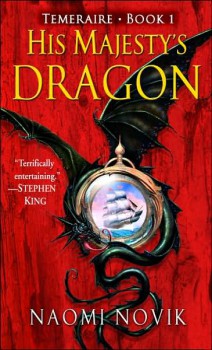 larger point: I know there are a lot of people who venerate “classics” in any media (music, literature, etc.). I certainly dip my toe in the classics, but I generally find that people do it better now. It’s interesting to see where writers get their influences, and how musical tradition builds on the other, but I almost always prefer the new over the old, and I never understand why people get so…emotionally charged in their defense of the classic. Aren’t we supposed to be progressing? Building on the foundations laid down before us? Striving to be faster, harder, stronger?
larger point: I know there are a lot of people who venerate “classics” in any media (music, literature, etc.). I certainly dip my toe in the classics, but I generally find that people do it better now. It’s interesting to see where writers get their influences, and how musical tradition builds on the other, but I almost always prefer the new over the old, and I never understand why people get so…emotionally charged in their defense of the classic. Aren’t we supposed to be progressing? Building on the foundations laid down before us? Striving to be faster, harder, stronger?
Twin horse is a trained circus animal turned zombie. What would you do if it came rampaging (fast zombie style) against you in an alley and you didn’t have any guns?
The key to any kind of unarmed combat is commitment. If you see two people squaring off to fight, watch them closely. The person backing up is more than likely going to lose. The person advancing is more than likely going to win. There’s also a principle of “explosive violence,” which I learned here (it’s one of the bigger schools where security contractors are trained before deploying). It’s funny, one of the mottos I have in the SHADOW OPS universe is “Skill beats Will.” That works for magic, but in real life, it’s the opposite. Explosive violence is a low skill, high will approach.
Of course, all of this is designed to deal with human opponents. I would probably need to… uh… modify my approach somewhat against a trained zombie circus horse.
Aww dang, you thought I’d let it die, but I just Frankenstein-revivified that first rotting horse so it could trot out and ask you for a random string of favorite things. (Baby sloths, Travis Louie, buffalo tofu, boot knives, Army of Darkness, Alexander Dumas, AC/DC, When Harry Met Sally – for example). Anywhere between three items and infinity, please.
Sushi, Trader Joe’s snack foods (wasabi peas, snap-pea crisps, trail mix), formal gardens, social media, movie soundtracks, Carcassonne, San Juan, Kendo, indoor climbing, mochi ice-cream, Thai iced-tea, coffee, coffee, coffee, hard cider, wargames, Go-fast boats, guns, dogs, Apple gadgetry.
Bonus round: Two questions on writing…
Your SHADOW OPS trilogy is set in the not so far-flung future. Does the past ever take your attention as a setting to write in? Got any Civil War mutant adventures in you?
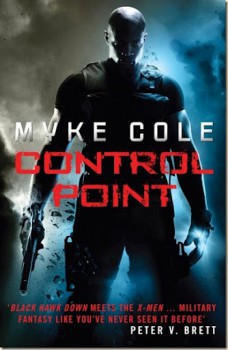
The modern military is where my experience and interests mostly lie. Chris Evans and Naomi Novik do the black powder thing better than I ever could, and I’ve already mentioned Joe Abercrombie for warband “low” medieval stuff. George R.R. Martin does “high” medieval better than anyone (and yes, I consider Song of Ice and Fire to be an extremely military story). So, historical period stuff isn’t really my bag. I did write a trunk novel (rejected by my agent) set in a fantasy world that felt like 17th C. Poland, and I have an outline for a straight medieval fantasy, which I may pitch to my agent some day. But I have to say no. The present, near future is where I’d like to stay for at least the next 3 books (I have another series I’m pitching right now that is contemporary like SHADOW OPS).
Name a facet of your writing process that is yet unknown to the general, prying public. Do you only drink a certain type of tea? Do you shadowbox and shout out stories like Robert E. Howard? Do you have to go for a walk before you sit down to write? Give us the goods.
What continually amazes me is that now, after finally going full-time as a writer, I am finding it hard to find time to write. For one thing, my position in the reserve has exploded, and is essentially a full time job for which I receive part time pay. For another, I went full-time so that I could really dedicate myself to marketing and promotion as well as writing, only to find that the marketing and promotion piece is pretty much all-consuming. Add a shred of a social life to that and I find myself unable to sit down to write sometimes until the evening (the same time I would if I was just getting home from an office job). For example: I got up at 7AM this morning. It’s now 9AM and I haven’t written a word. It’s been all admin and marketing for the past 2 hours. When I finish answering these questions, I need to write a blog entry. But, not to worry. The first two SHADOW OPS books were turned in ahead of deadline. The third will be no different.
There’s more Myke Cole coming soon from Ace Books. Book two in his SHADOW OPS series, Fortress Frontier, is due out in February 2013. In the meantime, check out his website, blog, Twitter and Facebook.
*Complete misinformation.
**This never happened, but Black Gate holds that – given the opportunity – Myke Cole could accomplish this feat.
I bow to your ability and offer you the crown of Black Gate’s best interviewer 🙂
Pfffffffffffffff. That is what I say to that. Like I was telling Cooney, I feel like a stilted weirdo interviewing folks. But thank you.
Just ordered my copy from Amazon. I remember reading and reviewing Myke’s “Naktong Flow” and giving it high marks. I plan on (eventually) reviewing this one for SF Site.
Fun review, Patty, and I hope Myke’s book sells well.
Yeah! I’m greatly looking forward to reading the next two in the series. : )
Not only is Myke a badass, he’s also hilarious–the kind of guy you meet and instantly like. He’s as close as we get to a real-life Steve Rogers.
Sweet! Hopefully someday we’ll cross convention paths. Probably at WFC.
“Naktong Flow” was awesome. I definitely need to pick up Cole’s novel.
Furthermore, I second his endorsements of mochi ice cream and Carcasonne.
I third the mochi ice cream.
[…] Black Gate (Patty Templeton) interviews Myke Cole. […]
Another fabulous interview, Patty.
I think someone should interview you. But I just can’t think of anyone cool enough.
Two things you may not know about Myke Cole:
1) He rocks a sweet tiara
2) He’s totally been adopted by my family on account of being the sweetest dudebro ever to them at the Nebula Awards last year.
PATTYFACE, you are the bestest interviewer. This was heaps of fun.
@John: I need no interviews.
@Amal: There is a pretty rad picture of Myke Cole in a tiara on Facebook.
[…] room, and fresh flowers delivered daily — and even sent the lovely Patty Templeton to interview him, but it was all to no avail. Life as a novelist offered him the one thing Black Gate […]
[…] Black Gate 13. His first novel was Shadow Ops: Control Point; our roving reporter Patty Templeton interviewed him shortly after it was published. He looked at the hard facts of selling a fantasy series in his […]